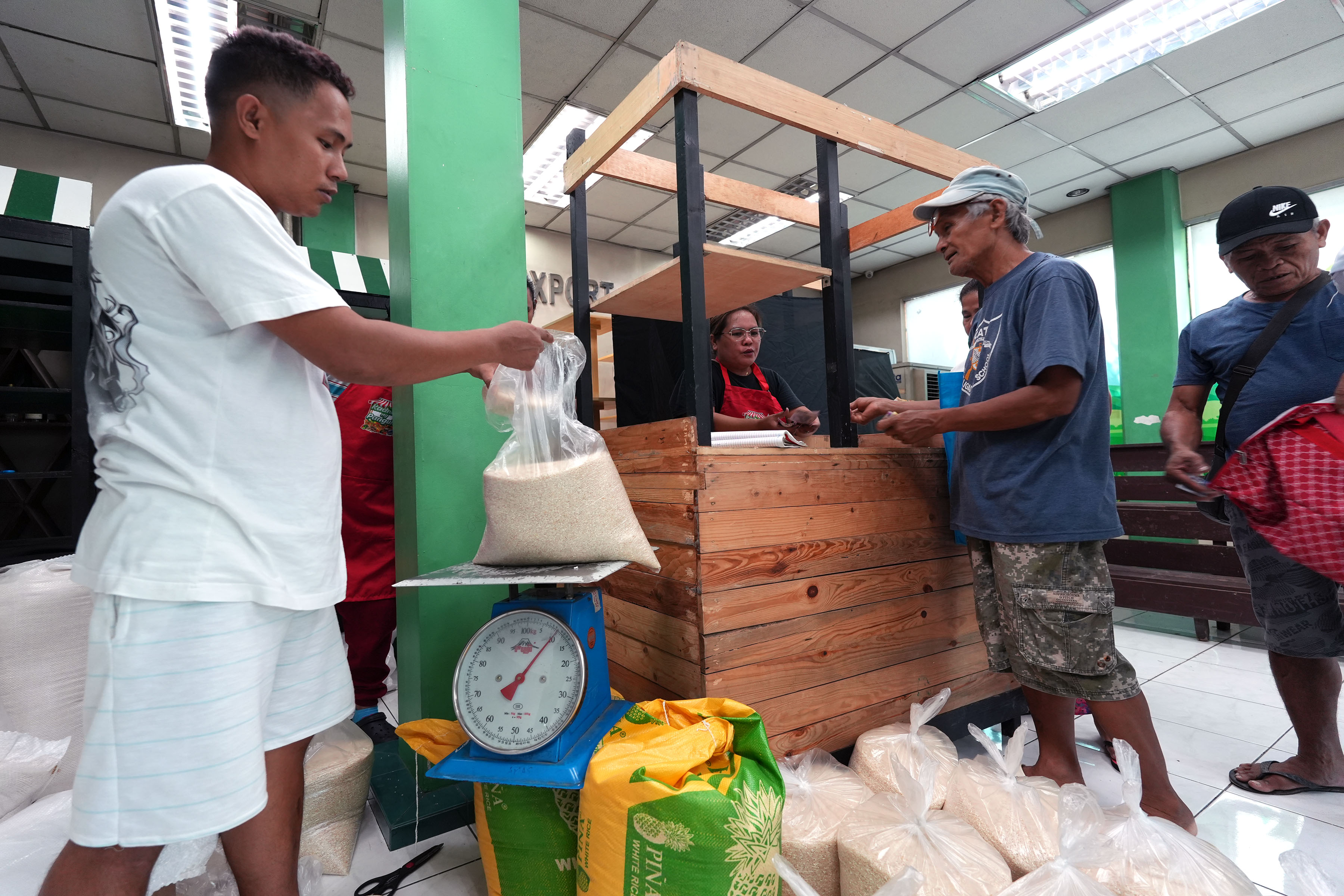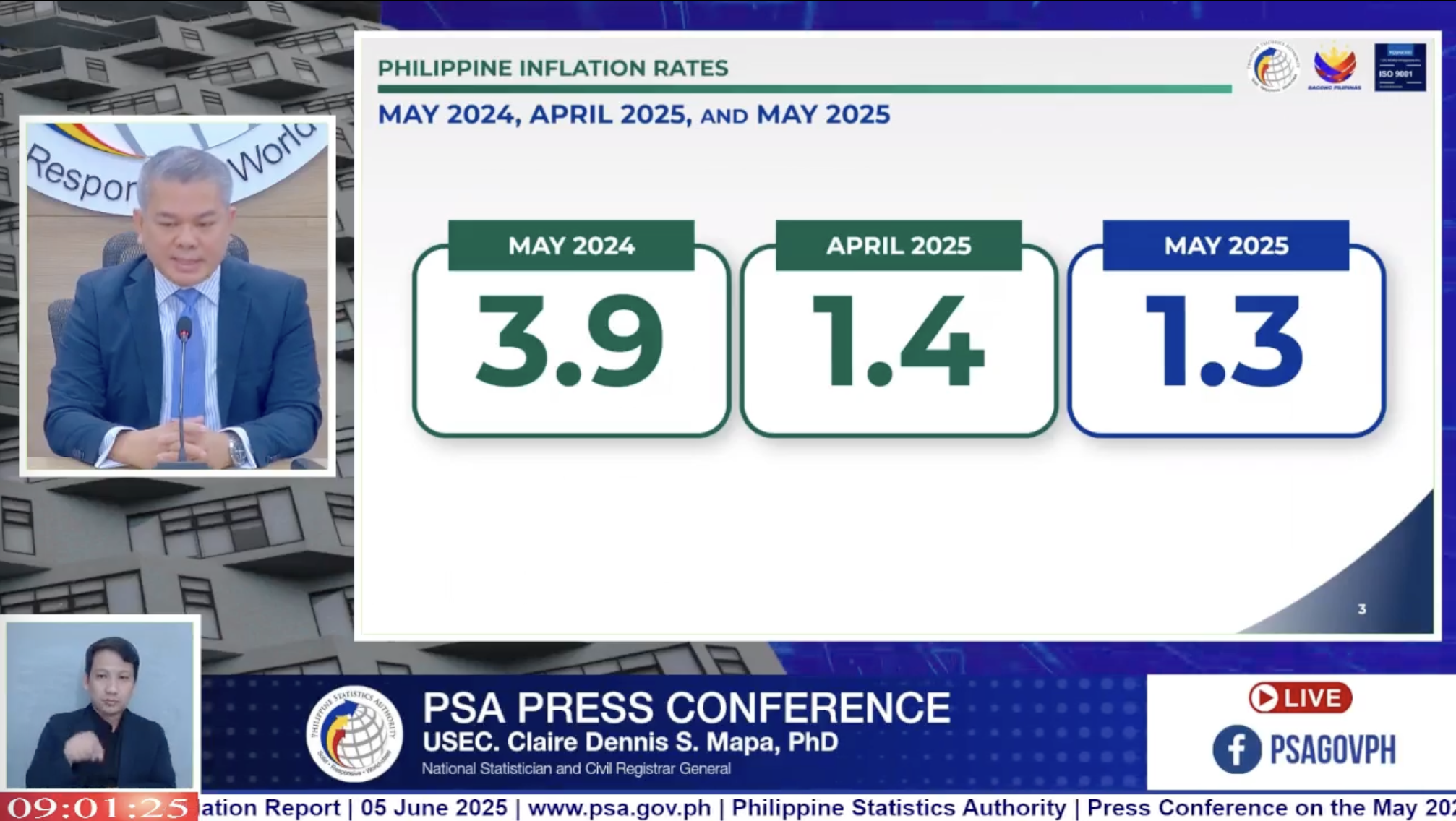
By Brian Campued
The administration of President Ferdinand R. Marcos Jr. remains committed to implementing targeted policies aimed at mitigating inflationary pressures, as it seeks to sustain the continued decline in the country’s headline inflation.
The Department of Economy, Planning, and Development (DEPDev) made the remark on Thursday after the Philippine Statistics Authority (PSA) reported that the country’s inflation rate further eased to 1.3% in May 2025 from 1.4% in April.
According to the PSA, the latest inflation rate is the lowest since the 1.2% recorded in November 2019.
PSA Usec. Claire Dennis Mapa said the downtrend was primarily brought about by the slower increase in the index of housing, water, electricity, gas and other fuels at 2.3%, from 2.9% in April.
Restaurant and accommodation services logged a slower increase at 2% in May from 2.3% in the previous month.
A faster annual decline was also recorded in the transport index at 2.4% during the month, from 2.1% in April.
Meanwhile, food inflation remained at 0.7%. Rice inflation, however, was registered at negative 12.8% in May from negative 10.9% in April.
“January to May, ang average inflation rate natin sa rice ay nasa minus 7.7 %… so ang expectation na d’yan ay it will continue to be negative for at least, siguro hanggang August so we will see. But definitely the average for the whole year will be negative,” Mapa said during a press briefing.
The PSA added that the bottom 30% income households experienced zero percent inflation in May 2025, a sharp decline from 5.3% in the same month last year.

In a statement, DEPDev Officer-in-Charge and Undersecretary for Policy and Planning Rosemarie Edillon said the May 2025 inflation “reflects the success of our sustained efforts to protect the purchasing power of Filipinos and ensure a more affordable cost of living.”
“We remain committed to executing the necessary measures to keep prices low and stable. With this, we are optimistic about the government meeting its headline inflation target of 2 to 4 percent for the year.”
Edillon said the Food and Drug Administration and the Department of Agriculture (DA) are strengthening their collaboration to ensure the availability of safe and effective animal vaccines amid ongoing African Swine Fever (ASF) and Avian influenza outbreaks, while the Bureau of Animal Industry is assessing the controlled ASF vaccination campaign.
The DA also extended the deadline for the issuance of fish import permits to the end of June 2025 to provide more time for importers to comply with the revised guidelines.
Meanwhile, Phases 2 and 3 of the “Benteng Bigas Meron Na” program—which sells rice at P20 per kilo to vulnerable groups—will be rolled out in July and September, covering more areas across Visayas and Mindanao. (with report from Denisse Osorio / PTV News)
-av
